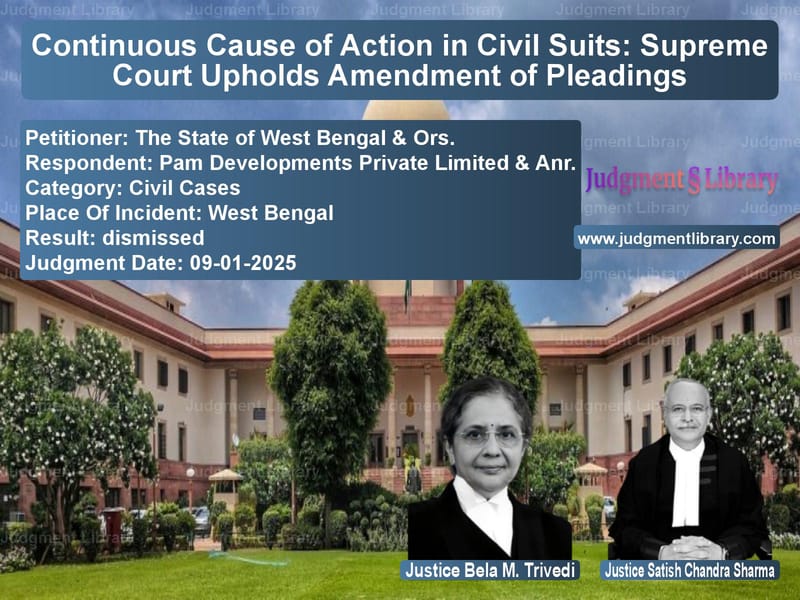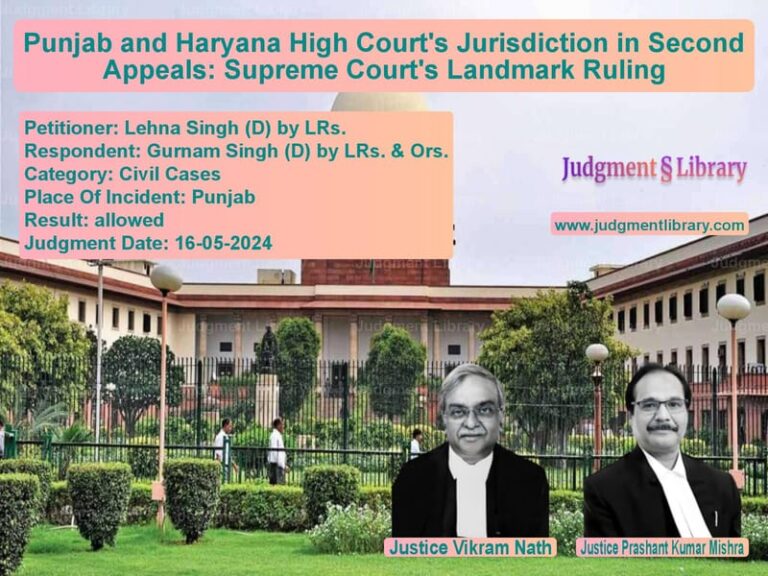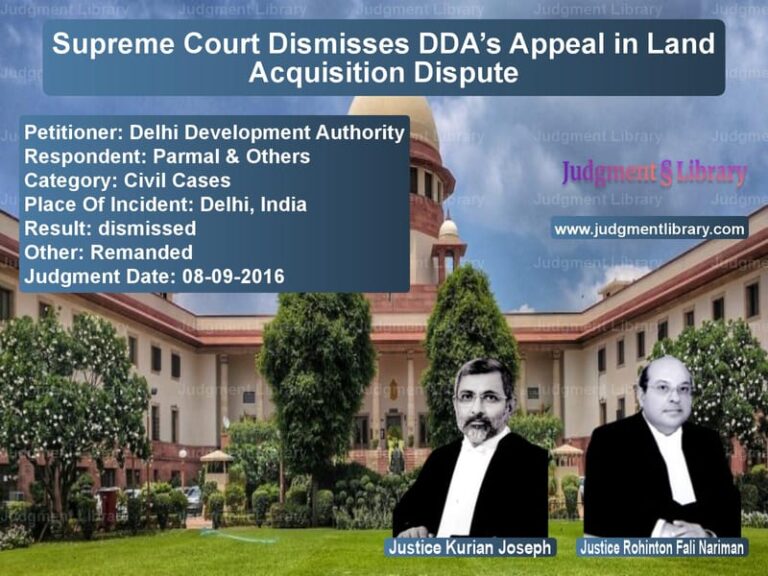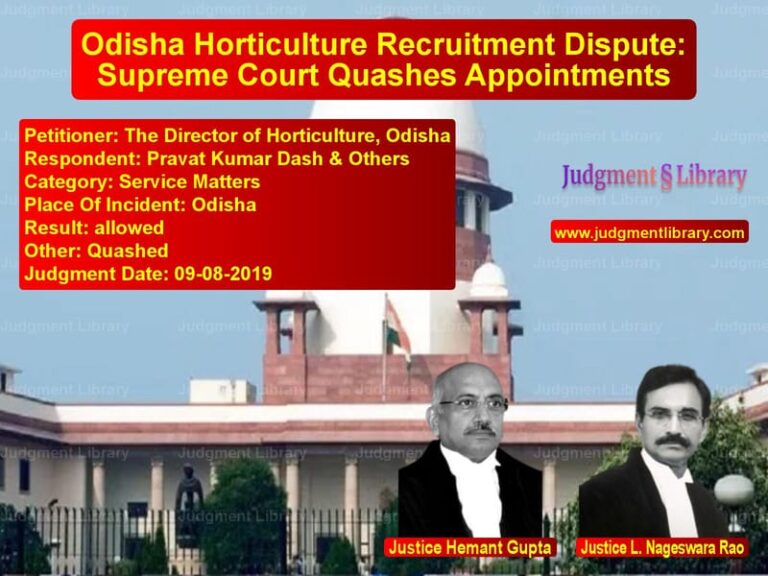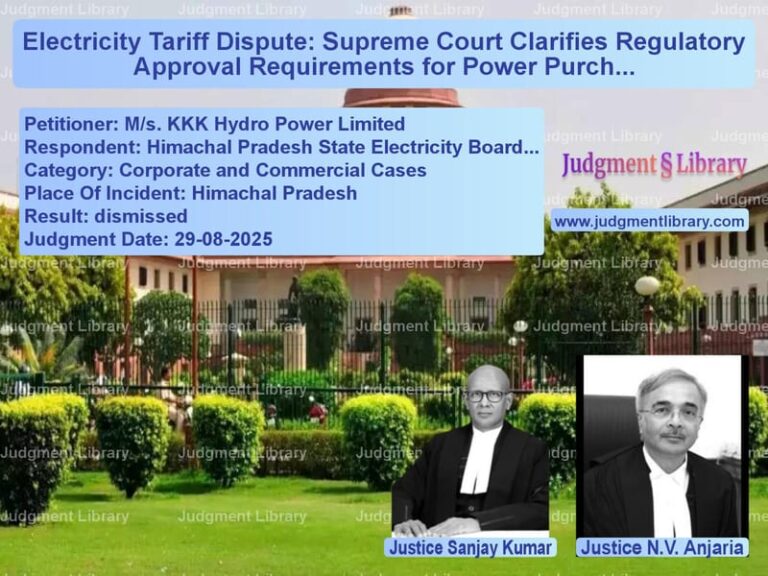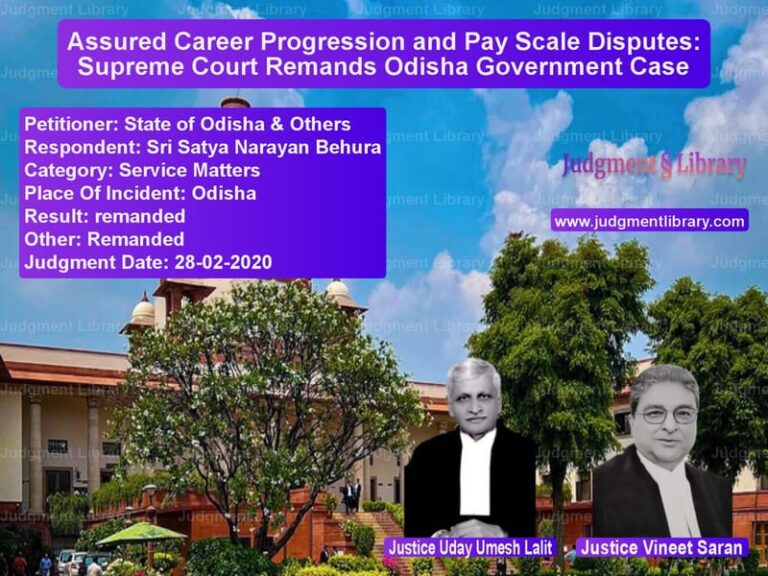Continuous Cause of Action in Civil Suits: Supreme Court Upholds Amendment of Pleadings
The Supreme Court of India, in its judgment in The State of West Bengal & Ors. vs. Pam Developments Private Limited & Anr., addressed a critical legal issue concerning the amendment of pleadings in civil suits and the principle of continuous cause of action. The ruling affirms the High Court’s decision to allow an amendment in a suit related to a construction contract dispute, despite objections from the State regarding limitation and procedural non-compliance.
Background of the Case
The dispute arose from a contract awarded to Pam Developments Private Limited (Respondent) by the Public Works Department (PWD) of the State of West Bengal for strengthening the Howrah-Amta Road. The timeline of events is as follows:
- A tender was floated on 04.12.2013, and an agreement was signed on 23.04.2014.
- The project was to be completed by 19.08.2014, but due to delays, the State extended the timeline while imposing a penalty.
- On 14.05.2015, the PWD forfeited the Respondent’s security deposit due to non-completion.
- On 07.07.2015, the Respondent was debarred from participating in tenders for two years.
- The Respondent challenged the debarment in the High Court, which set aside the order due to lack of prior notice.
- The PWD then reissued a show-cause notice and later passed another debarment order on 31.10.2017.
- The Respondent initiated a civil suit (C.S. No. 102 of 2016) challenging the debarment.
- Later, an amendment application was filed to include subsequent developments in the same suit.
Petitioner’s (State of West Bengal) Arguments
The State opposed the amendment application on the following grounds:
- Fresh cause of action: The later debarment orders were independent events requiring a fresh suit.
- Limitation bar: The amendment was sought beyond the three-year limitation period from the 31.10.2017 debarment order.
- Procedural abandonment: The Respondent had earlier withdrawn a similar amendment plea without liberty to refile.
- Lack of Section 80 CPC notice: No prior notice was served to the government before seeking the amendment.
Respondent’s Arguments
The Respondent countered the objections with the following submissions:
- Continuous cause of action: The debarment orders were part of a continuing dispute originating from the 08.03.2016 show-cause notice.
- Timely challenge: The High Court, in an earlier order dated 24.01.2020, had kept the issue open, making subsequent amendments relevant.
- No change in suit’s nature: The amendment merely incorporated facts necessary for adjudication.
- Substantive justice over technicalities: The amendment should be allowed to ensure a fair resolution of the dispute.
Supreme Court’s Observations and Ruling
The Supreme Court upheld the High Court’s decision allowing the amendment and made the following key observations:
- Continuous Cause of Action: The Court ruled that the subsequent debarment orders were not isolated incidents but a continuation of the original dispute arising from the 08.03.2016 show-cause notice.
- Suit’s Nature Unchanged: The amendment did not alter the fundamental nature of the civil suit; it merely updated facts for effective adjudication.
- Timeliness of Amendment: Given that the High Court had kept the issue open in its 24.01.2020 ruling, the amendment was well within the limitation period.
- Abandonment Not Applicable: The earlier withdrawal of an amendment plea was not a bar since it was based on different circumstances.
- Section 80 CPC Notice Not Required: Since the amendment was a continuation of the existing suit, no fresh notice to the government was necessary.
Final Directions by the Supreme Court
- The appeal filed by the State was dismissed.
- The High Court’s decision allowing the amendment was upheld.
- The civil suit shall proceed with the amended pleadings.
Legal Implications of the Judgment
This ruling sets an important precedent on several legal aspects:
- Recognition of Continuous Cause of Action: The judgment affirms that when multiple related incidents arise from an original dispute, they can be incorporated into the same suit.
- Flexibility in Amendments: Courts should allow amendments that facilitate proper adjudication rather than dismissing them on procedural technicalities.
- Clarification on Limitation: The ruling confirms that if an issue remains pending in court, amendments related to it do not violate limitation laws.
- Section 80 CPC Interpretation: The judgment clarifies that amendments in ongoing cases do not require fresh government notice under Section 80 CPC.
Conclusion
The Supreme Court’s decision in this case reinforces the principle that procedural technicalities should not obstruct substantive justice. By allowing the amendment, the Court ensured that all relevant facts could be considered in the civil suit, preventing multiplicity of litigation and promoting judicial efficiency.
Petitioner Name: The State of West Bengal & Ors..Respondent Name: Pam Developments Private Limited & Anr..Judgment By: Justice Bela M. Trivedi, Justice Satish Chandra Sharma.Place Of Incident: West Bengal.Judgment Date: 09-01-2025.
Don’t miss out on the full details! Download the complete judgment in PDF format below and gain valuable insights instantly!
Download Judgment: the-state-of-west-be-vs-pam-developments-pri-supreme-court-of-india-judgment-dated-09-01-2025.pdf
Directly Download Judgment: Directly download this Judgment
See all petitions in Contract Disputes
See all petitions in Specific Performance
See all petitions in Damages and Compensation
See all petitions in Judgment by Bela M. Trivedi
See all petitions in Judgment by Satish Chandra Sharma
See all petitions in dismissed
See all petitions in supreme court of India judgments January 2025
See all petitions in 2025 judgments
See all posts in Civil Cases Category
See all allowed petitions in Civil Cases Category
See all Dismissed petitions in Civil Cases Category
See all partially allowed petitions in Civil Cases Category

